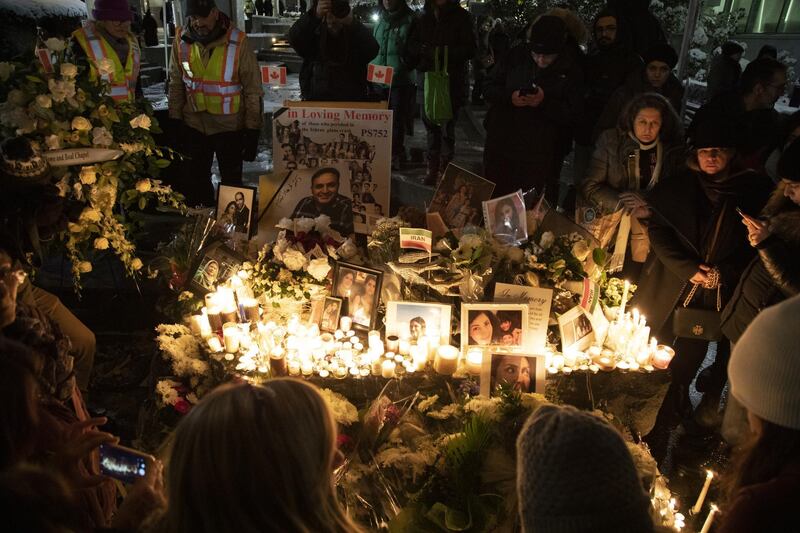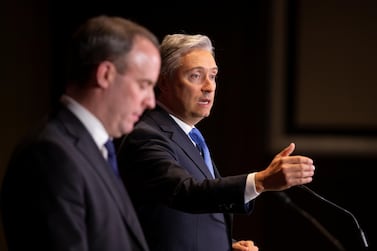Canada will lead multinational efforts to secure compensation from Iran for the families of the 176 victims killed when a Ukrainian passenger plane was mistakenly shot down during heightened tensions following the assassination of a senior regime commander.
Francois-Philippe Champagne, the foreign minister, will on Thursday meet with officials from Ukraine, Sweden, Afghanistan and the UK in London to pressure Iran to carry out a “thorough and credible” investigation into the crash. Fifty-seven victims of the crash were Canadians.
The ministers will discuss how they can ensure full cooperation from Iran to “achieve closure, accountability, transparency and justice -including compensation - for the families and loved ones of the victims,” according to a statement.
Iran’s military and officials have apologised for the “unforgiveable error” that brought down the plane and said that it would prosecute those to blame.
The admission, which came after several days of denials of responsibility and an apparent attempted cover-up, cleared the way for a potential deal between Iran and Canada to pay compensation, said a US lawyer and specialist in securing compensation for acts of international terrorism.
Stuart Newberger cited the precedent of the US paying Iran $62 million in compensation for the 248 Iranians killed in 1988 when a US navy cruiser mistakenly shot down an Iran Air jet.
“My guess is that because the regime is under so much pressure for shooting down the plane … there could well be a government to government settlement,” said Mr Newberger, a senior partner at US law firm Crowell and Moring.
Attempts to pursue Iran through the courts are complicated by sanctions imposed on Tehran and its international isolation, making it more likely it would strike state-to-state deals, he said.
Iran has previously declined to respond to cases brought by the families of US victims of Iran-backed terrorism.
Successful claimants have secured damages from a government-run fund made up of seized assets and fines against non-US institutions for breaching Iranian sanctions. US courts have made awards of $46 billion to victims, a small fraction of which has been paid from the funds.
Britain, which had four nationals killed, holds more than £500 million in frozen Iranian funds, according to the most recently published figures, but they cannot be touched for compensation claims. The UK government said there was no "lawful basis" to change ownership of frozen assets.
Attempts by British victims of Libyan-backed terrorism to secure compensation have so far failed. And the UK remains embroiled in a courtroom battle with over a 1970s debt of £387 million it owes Iran over an historic arms deal and which remains a thorny diplomatic dispute between the two countries.








